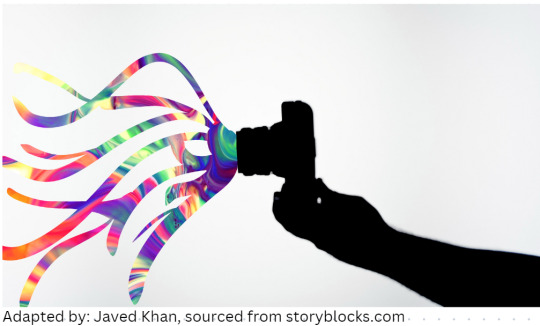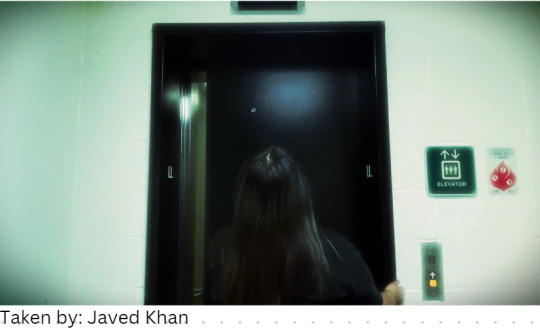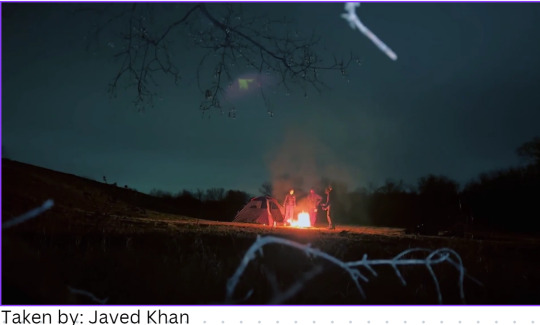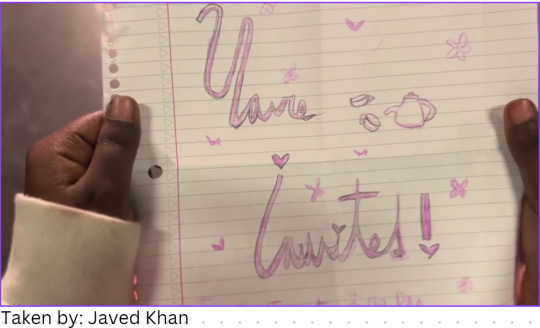Don't wanna be here? Send us removal request.
Text
Film- The Abstraction of Langauge

Introduction
I have always admired the nuance of language in the writings of some of my favorite authors. From Gabriel García Márquez’s ability to create colorful worlds full of life, wonder, and tragedy all at once to Toni Morrison’s rich and vivid imagery in her almost rhythmic language, my love for literature has always been obscured by my frustration with writing. Enrolling in a filming class has profoundly influenced my approach to writing - transforming how I think about storytelling, structure, and visual detail. I have always struggled with language, finding it difficult to express my thoughts coherently. I have often felt that my abstract thought process was arduous to express, as I struggled with confidence in my writing. My creative process of analyzing and making movies revealed, to me, a unique relationship with language and how it can be used to highlight complex thought, especially when paired with the visual aspects of film. When forced to compress emotionally impactful scenes filled with symbolism into written language, my communication ability dramatically improved. The art of filmmaking is converting abstract thinking into digestible meaning.

The Beginning of My Film Journey
My relationship with language has always been strained. I frequently struggled to organize my words into a format that those without my scatter-minded brain could understand. As such, I often felt unconfident and even ashamed of my writing abilities, relying on math and science as a scapegoat for my poor grades in English classes. My teachers occasionally commented “underdeveloped” when grading my work, adding to my growing shame.
This was a fear I carried well into high school. At one point, I was forced to sign up for IB Film, a 2-year film class in my last two years of high school—a course that delved deep into how movies are made and the creative choices used to evoke meaning. My favorite memories came from filming our project with all my friends after school despite the enormous effort and thinking involved.
I initially enrolled in the class hoping to be “an easy A," though it soon became apparent that this was far from reality. Throughout IB Film, I was required to watch movies and analyze specific elements, such as Hitchcock's use of lighting in Psycho or color in the Disney remake of West Side Story. To my dismay, the class required essays with huge word counts and pictures taken throughout the movie to use with the written text. Because of this, I loathed class, believing all this writing was just too much for a single film, and I didn't get how to write 3000-word essays based solely on colors, shadows, and props. I kept having waves of panic, overwhelmed when confronted with having to write. Those past writing experiences loomed over me, making me think I would never be good enough at writing to succeed in this class. I, especially, struggled with writing vivid, engaging scenes, often employing a very matter-of-fact writing style to avoid exploring the meaning behind a film's creative choices.
The Process of Analyzing Film
For most of my life, I felt trapped in the rigid structure I believed writing was—one where words had to fit neatly into paragraphs, follow a set format, and adhere to strict rules. In an environment where most of my writing came from history essays and book reports with rubrics to match, it only reinforced how I felt the writing was. Regardless of my teacher's answer of “there never being a correct answer,” it was clear that I had to follow the teacher's rhetoric to get a good grade. Film class was a whole different case. Analyzing film allowed me to work through a film's visual and audial aspects to create descriptive, powerful, and engaging writing. Films are packed with visual metaphors and symbolic elements, and I needed to learn how to translate these into words to succeed in this class.

The Significance of Language in Creating Film
Ironic as it is, the process of creating the film was one the things that helped me the most overcome my unconfidence when writing. Putting words together was always a struggle for me. Filmmaking was the bridge between these two worlds. Film is a visual medium, but every shot, cut, and movement carries meaning—just like words in a sentence.
One of the first films I worked on was titled Through the Lense of the Camera, a project involving me and four friends. One of the main goals I wanted to focus on in creating this horror-esque short film was bringing meaning through the film's imagery. One of the main focal points of the film was the idea of the entire movie being filmed from a handheld camera by one of the actors. Because of this, the prowess of what I could write into the film was very limited. I worked away at my keyboard for hours, struggling to create a plot and dialogue that could work within these tight constraints. Despite this, however, the creation of this project helped immensely develop my understanding of how language should be used. For this project, and filmmaking in general, my writing wasn't just about the dialogue but also the plot's tone, rhythm, and context. Lighting, shadows, and slight movements of the actors had to be considered, forcing me to put my abstract thoughts into language that others could understand and translate into my film vision.
Filmmaking’s inherent integration of multimodality was a unique opportunity to develop my fundamental understanding of language and its use. I recognized that language is more than words; it is how meaning is crafted and received.
Conclusion
One of my favorite quotes comes from the world-renowned director Alfred Hitchcock, who states, "All art is emotion, and the task of the filmmaker is to use the tools of his medium to manipulate the audience's emotional experience." Evoking emotion through film is a process of writing. Before turning on the camera, assembling the set, or even drawing the storyboard, filmmaking begins with writing a story. Film-making has become a means of self-expression, where I can truly bring my ideas to life through a symphony of writing, visuals, and sound. Breaking through the confinement of traditional writing styles by creating comedy skits, horror shorts, and documentary-style interviews have been some of the ways I’ve overcome my internal unconfidence with writing, which I carried around for years like a weight.

As a writer, my goals have always been to create imaginative and engrossing works of literature that envelop my readers in the worlds I create. Reading has always been a passion of mine, as well as reading works from authors worldwide and throughout the ages. I’ve always somewhat resented my brain and how it thinks, as im always swept away in daydreams yet can never seem to concentrate these thoughts onto the imposingly blank pages. Filming was a passion I never knew I had, one of immense frustration though eventual appreciation. Mixing these visual aspects into my creative work alongside language was an experience that vastly deepened my ability to communicate and demonstrated the power of storytelling. Whether it be a “stupid” short comedy about a tea party gone wrong or a noir film with a murderous easter bunny, filming has encouraged me to finally work on putting my thoughts onto paper and gave me a space to practice creating scenes from the books I loved to read in a different medium.
While my time in college has somewhat hindered my ability to continue this hobby, perhaps one day, I can continue my journey.
About the Author.
Javed Khan (He/Him) is currently a student in the College of Science and Engineering pursuing a degree in Biomedical Engineering. Having a passion for humanitarian studies, such as English, History, Philosophy, and Film, writing is one of his favorite assignments as it allows for creative expression that provides a break from the often-containing workload of STEM fields. He is powered by the determination to further medical devices, finding new and creative methods of incorporating innovative technology such as AI into the field. Javed often hangs out with friends in his free time. He always has fun with others, whether going out, watching a movie, or just sitting around and talking.
1 note
·
View note